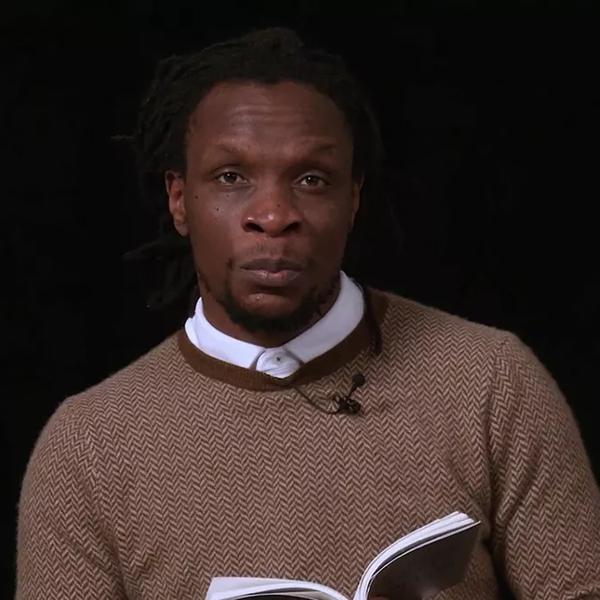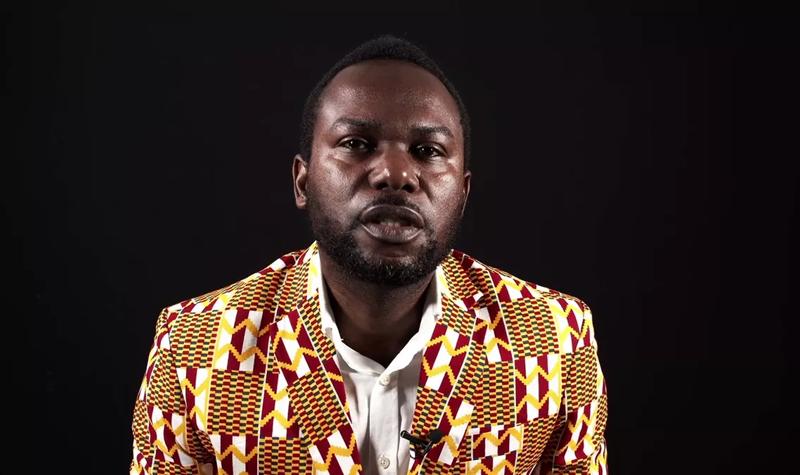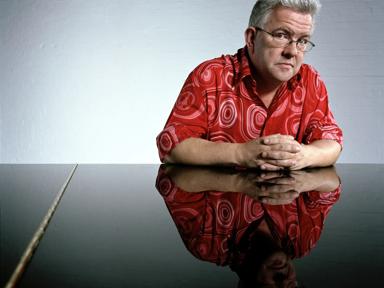Listen to the poets shortlisted for the TS Eliot Prize for Poetry 2023

Described by past winner Joelle Taylor as ‘the prize that all poets want to win’, the TS Eliot Prize for Poetry is the first major highlight of the 2024 literary calendar.
Inaugurated in 1993 to celebrate the Poetry Book Society’s 40th birthday – and to honour its founding poet – the annual prize is awarded for the best new poetry collection published in the UK or Ireland. It is judged by a panel of established poets, which this year comprises of Denise Saul, Sasha Dugdale and chair Paul Muldoon, who have already whittled down 186 entrants to a shortlist of ten poets, who’ll be hoping to follow in the footsteps of Taylor as well as other past victors, such as Carol Ann Duffy, Alice Oswald and Seamus Heaney.
On Sunday 14 January, we’ll be welcoming all ten of these poets here to the Southbank Centre to read from their shortlisted works, in a special Readings event hosted by poet and broadcaster, Ian McMillan. And to tide you over until then, here are each of the poets, reading from their shortlisted collections.
Jason Allen-Paisant
‘smile of leeches perfect circle’
‘smile of leeches perfect circle’ comes from Self-Portrait as Othello by Jason Allen-Paisant, which has already won the 2023 Forward Prize for Best Collection and was The Poetry Book Society Spring Choice. It is Allen-Paisant’s second collection, following on from 2022’s OCM Bocas Prize for Poetry winning Thinking with Trees.

‘Self-Portrait as Othello is a book of poems about a reimagined Othello in a modern landscape. It has two major aspects to it, firstly for many years I’ve been struck by how the play fails to imagine all that there could be to a character like Othello. So I was very much driven to wonder about the missing backstory of Othello – where did he come from? How did he arrive there? What was his mother tongue? The sort of questions that an author living in Othello’s type of skin would want to ask.
‘The other essential aspect is the use of Othello as a container device for examining Black male bodies in the Europe of today, interweaving questions around masculinity, aspiration and status.’
Jason Allen-Paisant on Self-Portrait as Othello
Joe Carrick-Varty
‘THE CHILDREN’
‘THE CHILDREN’ comes from More Sky, Joe Carrick-Varty’s 2022 Eric Gregory Award-winning debut collection. Prior to More Sky, Carrick-Varty, who is the founding editor of bath magg, had published two pamphlets of poetry; Somewhere Far (2019) and 54 Questions for the Man Who Sold a Shotgun to My Father (2020).

‘More Sky is a book about family and lots of hallmarks of family. So essentially I think it’s a book about love really. But I guess there are subsections within the family too, like the nuclear family and perhaps sometimes the farce that is the nuclear family, but the love that still exists within that, despite.
‘And it’s about my experience of family. So there’s definitely elements of working class masculinity here, and there are elements of working class family that I examine: violence, hereditary, generational violence that’s carried out within families, and has been carried out across generations of my family. And I think the book is looking backwards – the speakers of the poems are looking backwards – worried about the future, and carrying out certain histories.’
Joe Carrick-Varty on More Sky
Jane Clarke
‘Spalls’
‘Spalls’ comes from A Change in the Air, Jane Clarke’s third collection, which has also appeared on the longlist for The Laurel Prize and the shortlist for the Forward Prize for Best Collection. Each of Clarke’s previous two collections were also shortlisted for awards; The River (2015) for Royal Society of Literature’s Ondaatje Prize, and When the Tree Falls (2019), for the Pigott Poetry Prize, the Irish Times Poetry Now Award and the Farmgate Café National Poetry Award.

‘A Change in the Air is an after collection in lots of ways, which in itself is one of the many references to change that occur throughout the book. Another aspect of change is that this is the first book I wrote after I lost my father, and he had been a major muse for me in my other two collections.
‘When I came to putting it together I realised there were really six sequences and that even though they were separate, the theme of change flows through all of them. And it’s personal change, social, cultural change, political change. And so the very first sequence is about my mother and her memory loss and the change that has meant for her, and for me as one of her carers, and this new phase in our long relationship.’
Jane Clarke on A Change in the Air
Kit Fan
‘From the Yemen Data Project’
‘From the Yemen Data Project’ comes from The Ink Cloud Reader, the third poetry collection by Kit Fan. It follows his 2011 debut Paper Scissors Stone which won the Hong Kong University International Poetry Prize, and As Slow as Possible (2018) which was both a Poetry Book Society Recommendation and one of the Irish Times Books of the Year. The Ink Cloud Reader was also shortlisted for the Forward Prize for Best Collection.

‘The Ink Cloud Reader has three parts. The first is called ‘Once Upon a Cloud’, and some of these poems were written in a frenzy when my partner was very ill in 2021 during the pandemic and there was a real sense that mortality was all around me. The second part is called ‘Hong Kong, China’ and it was written under the shadow of the student, and widespread protests which were happening in Hong Kong. Then the pandemic brought in the national security law in Hong Kong, which continues to minimise civil liberty in the city, so many of the poems respond to this crisis in my birthplace.
'And finally, the last part is called ‘Broken Nose Jizo’, which is a God. I’m always interested in whether we believe in religion that’s just everywhere – it’s the grand narrative, it frames our life and death in such a powerful way. So I was interested in pushing these poems into the ether of the world.’
Kit Fan on The Ink Cloud Reader
Katie Farris
‘What Would Root’
‘What Would Root’ comes from Standing in the Forest of Being Alive, Katie Farris’ debut collection. Farris is the author of the 2020 Chad Walsh Poetry Award winning chapbook, A Net to Catch My Body in its Weaving, and the hybrid-form book, boysgirls.

‘I started writing the poems in this collection when I was diagnosed with breast cancer in August 2020. As I began chemotherapy I was posting updates online for people on how I was doing during the course of the pandemic, and my husband suggested putting a poem up there, and I resisted. I was writing poems just for me as I needed to process the experience, but I was too tired to argue, so I did post one online.
'It surprised me how people responded, they said that they’d been through something similar but didn’t have the words to describe it, or a family member had gone through cancer and wasn’t able to tell them how they felt, and so the poems gave them an opportunity to understand somebody they loved a little bit better. And because of that, I kept writing.’
Katie Farris on Standing in the Forest of Being Alive
Ishion Hutchinson
‘XXVIII’ from ‘The Anabasis of Godspeed’
‘The Anabasis of Godspeed' comes from School of Instructions, Ishion Hutchinson’s third poetry collection. It was preceded by 2018’s House of Lords and Commons – a recipient of the National Book Critics Circle Award in Poetry – and Far District (2021), which won the PEN/Joyce Osterweil Award for Poetry.

‘School of Instructions is a book length poem about the experience of West Indian soldiers in the First World War. These soldiers, from various islands in the Caribbean were treated very poorly. They were there to do service work, to dig the trenches, to carry the weapons – they were sort of beasts of burden. So I wanted to treat that experience with as much tactile imagery and rhythmic force as possible, to imagine their experience of war and the trauma of war with a texture that brings us close to what they might have felt through the intensity of being displaced in two ways; as bodies vulnerable to death, and also because they were in servitude to the Empire.
‘I also wanted to humanise their experience, to not make it only about the experience of extremities of combat, but to imagine what life might have been like for them on the Caribbean islands they left behind. What names did they have? How did they look? What was a normal day for them?’
Ishion Hutchinson on School of Instructions
Fran Lock
‘La jena di Londra’
‘La jena di Londra’ comes from Hyena!, the 12th collection of poetry from Fran Lock. Among her previous collections are Contains Mild Peril (2019), Ruses and Fuses (2018), Muses and Bruises (2017), Dogtooth (2017), The Mystic and the Pig Thief (2014), and her 2011 debut, Flatrock.

‘The main impetus for the collection is Charles Hoy Fort, the well known researcher into anomalous phenomena. One of the less bonkers things he came up with, was that under certain emotional conditions such as extreme anger, or grief, or sadness, a man could quite literally transform into a hyena. I think I had a moment in 2020 where I felt feral enough that that seemed plausible to me, so I ran with that idea.
‘I’m using transformation into a hyena to talk about the embodied effects of traumatic and sudden loss, but also how grief and the language we use when we talk about grief has a kind of transformational capacity that can open new ways of relating to the world and each other. It’s like a trapdoor in language you can go through where everything becomes more magical and the ordinary rules are suspended so it’s slightly magical, slightly odd.’
Fran Lock on Hyena!
Eiléan Ní Chuilleanáin
‘Instructions to an Architect’
‘Instructions to an Architect’ comes from The Map of the World, the second collection of Eiléan Ní Chuilleanáin’s poetry to be shortlisted for the TS Eliot Prize, following 2009’s Griffin International Poetry Prize winning The Sun-fish. Ní Chuilleanáin has published 11 further collections, including Acts and Monuments (1972) which won the Patrick Kavanagh Award and The Mother House (2019) which received the Irish Times Poetry Now Award.

‘One part of writing this book was getting things said. I’m very old, I’m 80, and so there are things I think I should get said before I’m finished. I’m afraid most of the themes [of The Map of the World] are disasters, the disasters of war, of illness – I wasn’t too bothered about writing about Covid, but one of these poems was written about the aftermath of getting Covid myself. And I wanted to write about historical themes, like the fate of Thomas McDonough and Muriel Gifford. I wanted to imagine the plight of refugees even though this was before the big refugee crisis started. I wanted to write about Irish emigration and the music that goes with it, so those are themes’
Eiléan Ní Chuilleanáin on The Map of the World
Sharon Olds
‘Quarantine Moring’
‘Quarantine Morning’ comes from Balladz. The latest of 13 books of poetry published by Sharon Olds, Balladz was also longlisted for the 2023 Griffin Poetry Prize and was a finalist for the National Book Award. Olds is the one poet on this year’s shortlist to have previously won the TS Eliot Prize, having done so in 2012 with Stag’s Leap, which also earned her the Pulitzer Prize.

‘I think there is a theme of privilege [in Balladz] since it was written when I was quarantining alone in the woods. I noticed how many comforts were around me and how safe I felt then compared to so many other people whom I was thinking about. With this book I never [ranked the poems to be included, as I have with previous books] I just figured go as you will, go as you are, fly as you can, so it was, in my mind, as much a social document as a work of art.’
Sharon Olds on Balladz
Abigail Parry
‘In the dream of the cold restaurant’
‘In the dream of the cold restaurant’ comes from I Think We’re Alone Now, the second collection from Abigail Parry. Jinx, Parry’s 2018 debut collection, was shortlisted for the Forward Prize for Best First Collection and the Seamus Heaney Prize for Best First Collection, and named a Book of the Year in The New Statesman, The Telegraph and The Morning Star.

‘The book is about intimacy and about some of the ways in which intimacy can fail. Originally it was not going to be a book of poems, I was commissioned to write a stage show on the topic of intimacy. But the more I explored this as a topic, the more it seemed to recede from me, as I kept coming on this one issue, this great Wittgensteinian burden of whether or not you can truly communicate with another human being – how can you really know that what you meant to say is what was understood? And it’s quite a melancholy thought to pursue.
‘Some months later, I tried to explain this to a scientist I didn’t know at an event, and he said “I don’t think you can really talk about intimacy, without talking about this Wittgensteinian burden of whether you can really communicate with another person”. And what ensued between us was a warm, animated conversation and an instance of intimacy. I then realised I had been going about this all wrong, as a directionless, intense, solipsistic reading. So instead I just started talking to people and asking them that question.’
Abigail Parry on I Think We’re Alone Now

You can hear more, from all 10 shortlisted poets, at a special event hosted by poet and broadcaster Ian McMillan in our Royal Festival Hall on Sunday 15 January 2023.